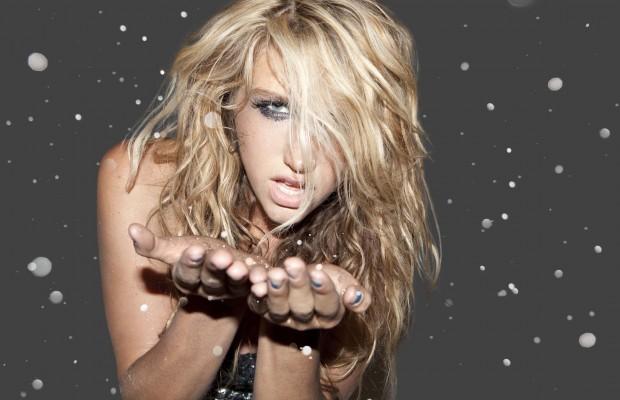Pop music can be fickle game for its many princesses. While Beyonce, Taylor Swift and Katy Perry have hit seemingly unreachable heights, others, including Lady GaGa and Rihanna, are trying to reinvent themselves in different genres (in RiRi’s case, by throwing an eclectic mix of songs at the wall and seeing what sticks, judging by early singles off her eighth album) to avoid the pop industry’s cannibalization of its stars, which seems to happen when every time an album produces only one hit. The original princesses of the modern era, Britney Spears and Christina Aguilera, still manage to cash in on their celebrity and land songs on the radio sporadically but haven’t had big hits in years. Meanwhile, upstarts like Charli XCX, Kiesza and Tinashe are chasing stardom by reviving old pop tropes, often to the extreme. Lorde and a few others are just making it up as they go.
That’s what Kesha, America’s favorite valley girl turned ratchet, did when she debuted as Ke$ha in 2010 with infectious dance-pop tracks on which she sang, rapped and shouted about drinking, dancing, hooking up and dicks (among other things) in a language that young people ready to party were attuned to.
The star’s world has been tumultuous of late; after rising to the top of pop with her valley girl gone ratchet routine in the early 2010s, Kesha went to rehab for an eating disorder, decided to ditch the dollar sign from her moniker and filed suits against her long-time collaborator and pop music phenom Lukasz Gottwald (the producer better known as Dr. Luke) of rape and emotional abuse.
Amid controversy, Kesha surfaced a few weeks ago at a Haim-led charity event in Los Angeles where she dressed down and performed a stripped version of “Your Love Is My Drug” with the increasingly prominent pop-rocker sisters.
Then, out of nowhere, Kesha announced she’d be playing at the Black Cat, a grungy 750-capacity venue she played years ago on her rapid ascent to stadium and pavilion stages. Fans eager to see a pop princess from the past in an intimate venue snapped up the tickets in minutes but nobody could explain why she was playing such a small show. Would she have new music to play? Would she unveil a new persona as an artist sans-Dr. Luke? Would the show be more acoustic and less electronic like her performance with Haim?
The answer to all of those questions turned out to be no. Kesha played an all-out, bombastic dance-pop show replete with beefy and glistening bare-chested male back-up dancers, sequin leotards (yeah, that’s multiple), thumping backing tracks, animal costumes, choreography, confetti cannons and the singer’s bouncing blown-out blonde mane. Sure there were a few things that one wouldn’t necessarily expect at the show, like Kesha doing pretty impressive acoustic covers of Chris Brown (“Loyal”) and Nick Jonas (“Jealous”) and drag queens taking over the stage for the encore. But even those moments demonstrated to the crowd, consisting mostly of white women and gay men no younger than 19 and no older than 30, that this was the same Kesha they partied to and fell in love with during high school and college, just on a smaller stage.
Not that the size of the stage was a bad thing. Fans relished in the fact that they made it to this intimate show, where they could take close up smartphone shots of a certified popstar, who would notice their elaborate outfits (their “stockings ripped all up the side,” if you will) and glittered eyes. Every member of the audience had a legitimate chance to get sprayed by beer coming out of Kesha’s mouth or catch a sweaty shirt or headband tossed off the stage by the songstress.
But there were moments, or rather songs, where Kesha didn’t completely command the small crowd. The volume at the Black Cat was lower than it typically is, and as Kesha worked her way through lesser hits and the aforementioned covers, dancing slowed, talking ramped up and phones starting popping out of pockets, for photos or maybe some pre-“Tik Tok” texting. It was a bit depressing; fans who were able to get hands on tickets through tight planning, radio contests or expensive resale ended up talking and using their phones during songs they weren’t 100 percent familiar with.
Despite some in the crowd’s inattention, Kesha put on a fabulous show. She had ferocity in her eyes and swagger in her demeanor as she danced, marched, jumped and bounded on stage, her voice sounding almost exactly how it does on her records.
She was a force to be reckoned with. And when she whipped out the big hits, everyone turned up and became an ardent fan, shouting every word while dancing madly, arms in the air feet off the ground. First came “We R Who Who We R” and “Blow” early in the set, then “Blah Blah Blah” led into the classic “Your Love Is My Drug.” The show culminated with “Tik Tok,” Kesha’s debut song, before she left the stage only to return with drag queens for “Die Young” and then “Timber” sans-Pitbull wearing a sequined American flag bandana. Kesha left the crowd sweaty, drunk and blown away.
Where Kesha is headed beyond a slew of secret one-off American club shows is unclear. But her show at the Black Cat exemplified that she’s still got the star power America fell in love with in the first place. If she wanted to, she could probably bank off of college nostalgia for a few more years before figuring out something else. More likely though, the show indicated the princess’ (valiant) return to the volatile world of pop music that chewed her up and spit her out. Now, she just needs a new hit.


